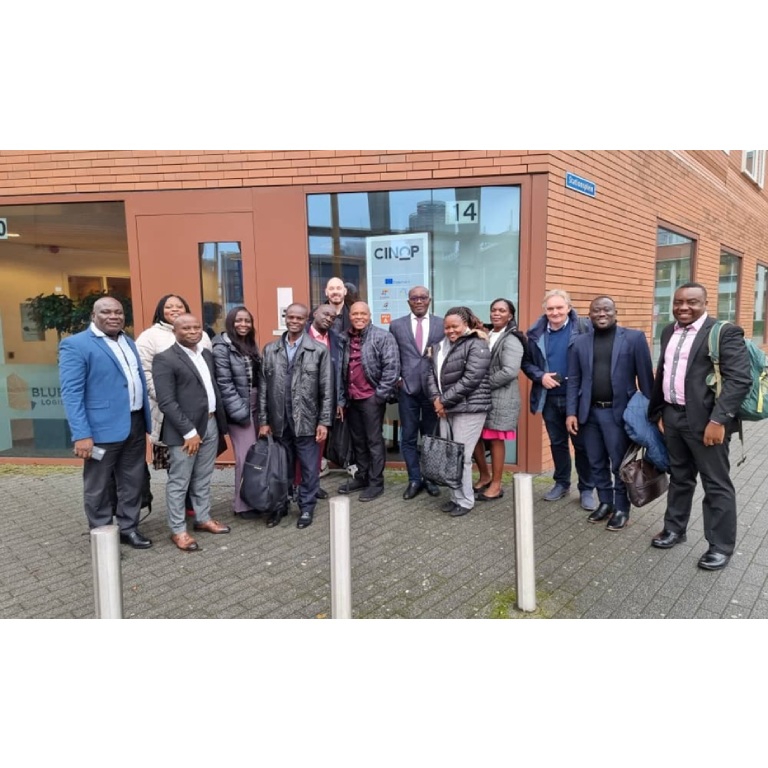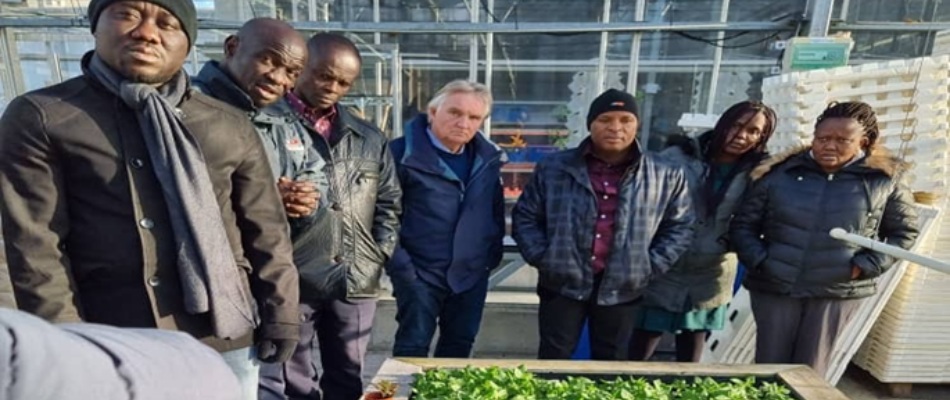Implementing Partners: CINOP B.V., Den Bosch and The Commission for TVET (CTVET), Accra.
Twelve public officials from Ghana have embarked on a week-long study visit to the Netherlands from the 4th-9th of December 2022. The team were representatives from the Commission for Technical and Vocational Education and Training (CTVET), the TVET service and the Ministry of Food and Agriculture (MOFA).
This study visit is part of the implementation of the Orange Knowledge Program (OKP) GHA 103827 which is aimed at “Institutional strengthening of national bodies for TVET in Ghana in terms of accreditation, supervision and management and by making ATVET competence based)”. The goal of the study visit is to grant these public officials the opportunity to interact with some Dutch organizations in the Netherlands and to learn best practices for possible adaption and adoption for improved TVET in Ghana.
This project is administered by Maastricht School of Management and coordinated by CINOP and its consortium partners Aeres, Kwadaso Agricultural College, Kwame Nkrumah University of Science and Technology, and Sunyani Technical University.

Day 1: The team visited the CINOP office at Den Bosch where they were taken through lessons such as the role of CINOP as a think tank for the Dutch TVET sector, the Dutch education system and how it works, as well as inclusion in education.
The team later visited the Fruit Tech campus at Geldermalsen. The Fruit Tech Campus is working on the renewal of fruit education in order to increase the availability of sufficient talent with the right knowledge and skills for our fruit sector. The relatively newly developed center is embarking on an initiative between the government, private sector and educational institutes. It is a central point for innovation and education in the field of fruit, technology and data, and where education, region and business meet.

Day 2: A visit was made to SBB at Louis Braillelaan, Zoetermeer. SBB is a professional organization responsible for senior secondary vocational education and training and business, trade and industry and the regulator for standard setting and cooperation between VET schools and companies in The Netherlands.
At SBB, the team were taken through general introduction to TVET education system in the Netherlands, principles and practices of Quality Education system, the TVET Qualifications framework in the Netherlands and the Labour market information. Emphasis was placed on the relation between industry needs and TVET education, in particular in relation to employability of fresh graduates. Also, the balance between theory and practice was given ample attention.
Later on, the same day, the team visited Nuffic office in The Hague. At Nuffic, Mr Peter Oomen took the team through Nuffic’s recent monitoring visit to Ghana and overview of its findings. The team were also taken through Nuffic’s programs including TMTs, ICPs and the various scholarship packages. The team were also taken through the requirements and procedure for applying for Nuffic Scholarships and the eligibility criteria etc.
Day 3: The team had opportunity to visit Aeres University of Applied Sciences. At Aeres, the team had opportunity to learn about Quality Assurance of Education and accreditation systems and processes, relationship between VET schools / graduates and Universities of applied sciences as well as the roles of universities of applied sciences in bridging the labour gap in the Netherlands. The process of curriculum development in relation to the labour market was explained. Field visits to the stables, greenhouses, field labs etc. were organized.

Day 4: On this day, the team stayed at the seats to meet at Utrecht, where lessons on Sexual and Reproductive Health and Rights (SRHR) as well as the Dutch gender education system works were learnt. Other important and relevant lessons learned by the team were from the Kennis Centrum EVP, which is a Knowledge Centre that develops a code for certification of experience.
Day 5: We visited Maastricht School of management (MSM), where the team had opportunity to interact with the staff and to learn many lessons of relevance including Introduction to MSM’s Expert Centre on Emerging Economies (ECEE). This centre focuses on the role of international and local businesses in promoting economic growth and sustainable development. Other lessons learned through interaction with the staff of MSM include:
- Stock taking of OKP projects after 3 years,
- the Triple Helix (3H) concepts and its benefits,
- Marketing activities for promoting (A)TVET education,
- and overview to Agribusiness development which are relevant and significant lessons to promoting ATVET in Ghana.
